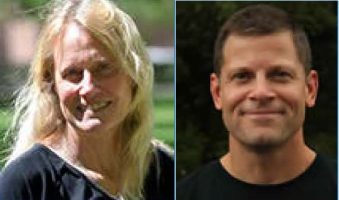
- This event has passed.
7/29/15: Catherine Riseng & Kevin Wehrly
July 29, 2015 @ 10:30 am - 11:30 am

Please join us for the next CILER-GLERL Great Lakes seminar:
Time: 10:30 – 11:30 am ET
Location: NOAA Great Lakes Environmental Research Lab
Speakers: Dr. Catherine Riseng (SNRE-UM) and Kevin Wehrly (MDNR)
Title: The Great Lakes Aquatic Habitat Framework: A spatial framework, database and tools to meet the needs of Great Lakes management and research
Event flyer
Abstract: The Great Lakes Aquatic Habitat Framework (GLAHF) is a web-accessible spatial framework and database for use by managers, planners, researchers, and restoration specialists across the basin. The database includes available physical, chemical and biological data across the entire Great Lakes basin and these data are georeferenced to a common spatial grid, the framework. The database includes data from multiple agencies, researchers, and NGOs that has been cross-walked and integrated in to a common database resulting in consistent basin-wide information. The hierarchical spatial framework provides spatial linkages among tributary watersheds, coastal/nearshore, and offshore zones allowing users to “zoom in” to manage specific problems at specific locations and to “zoom out” to identify overarching issues for effective policy making. Great Lakes agencies, managers, and researchers commonly express a need for publically accessible habitat data and decision support tools that can be applied to the multitude of problems that face aquatic ecosystems throughout the basin. The GLAHF project team has been developing a number of tools to assist with habitat monitoring, assessment, and prioritization for protection and restoration including: a scalable habitat classification framework; a GIS data viewer and server; a web-based decision support system to facilitate research and management activities in the Great Lakes; and, are conducting a coastal condition assessment. The GLAHF project and tools have been developed based on feedback from entities directly involved with making management decisions in the basin and address their specific information needs.
Bios: Dr. Catherine Riseng is an Assistant Research Scientist at SNRE and the PI for the Great Lakes Aquatic Habitat Framework project, and is the Research Program Director at Michigan Sea Grant. Dr. Riseng is an aquatic ecologist with a focus on using landscape approaches to understand aquatic ecosystems and the effects of land use change. She has incorporated this landscape approach to the GLAHF project and is currently developing a basin-wide ecological classification system that integrates watershed, coastal, nearshore and open water information.
Dr. Kevin Wehrly is a research biologist with MDNR and an adjunct assistant professor at the University of Michigan. Wehrly has been the PI on numerous research projects that involve GIS-based modeling, inventory, and assessment of aquatic resources, and has considerable experience leading multidisciplinary teams comprised of scientists from multiple agencies and academia.
Important Visitor Information
All in person seminar attendees are required to receive a visitor badge from the front desk at the NOAA Great Lakes Environmental Research Laboratory facility. Seminar attendees need to present a valid U.S. photo ID or green card.
If you are a Foreign National advance notification of at least 48 hours is needed so that security guidelines are followed. You will need to present your passport (a copy will NOT work).
For questions regarding building access, or assistance in obtaining Foreign National clearance, please call 734-741-2235. Email contact: [email protected]
Directions to GLERL: http://www.glerl.noaa.gov/facil/triptik.html
